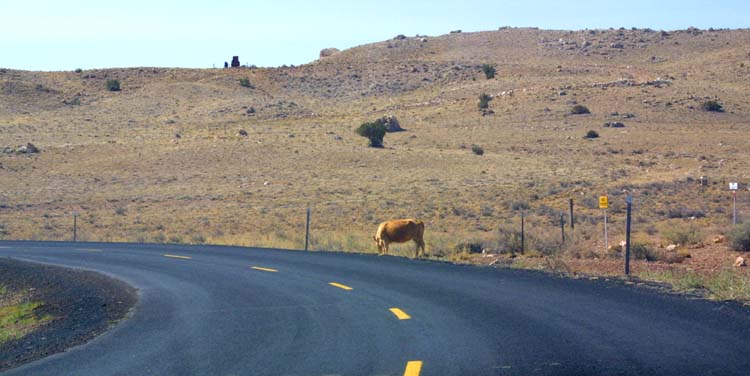
|
|
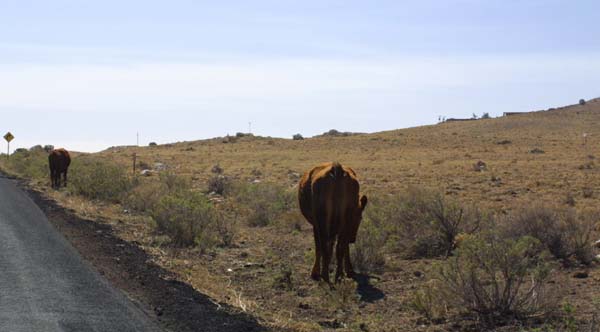
|
The area in which the crater sits is typical Arizona scrub. There is really nothing like farming here, though it is possible to survive as a rancher. Access to the crater is through grazing land, with more cows in evidence than people. |

|
A mother and her brood, along with some friends. They have found what is the only shady spot in sight. it is hot out here, and the few trees which survive are small. |
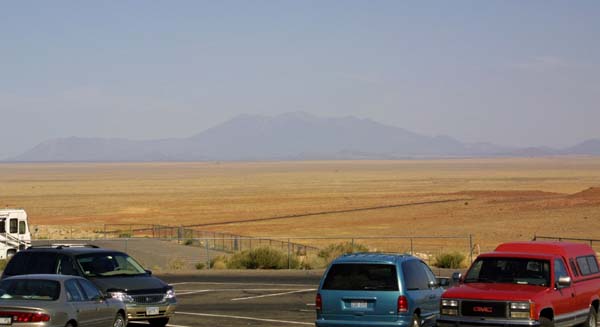
|
A view over the parking lot, of the San Andreas Mountains, where the
city of Flagstaff is nestled. These are large mountains and are many miles
off in the distance.
Below: |
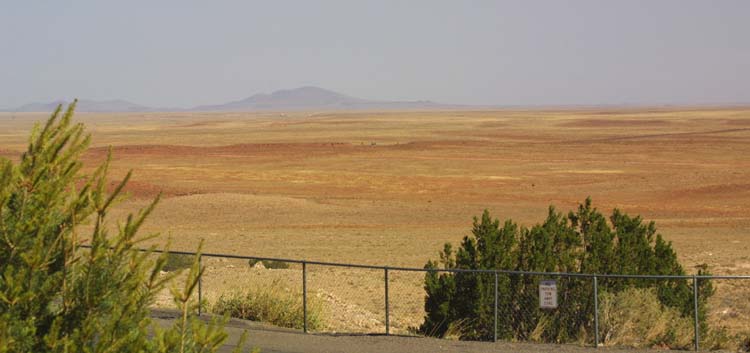
|
|
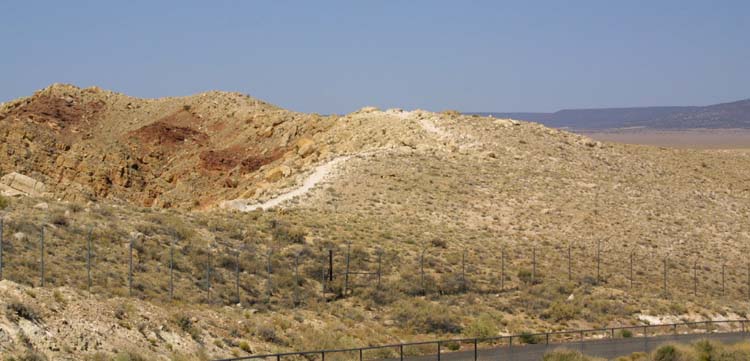
|
|
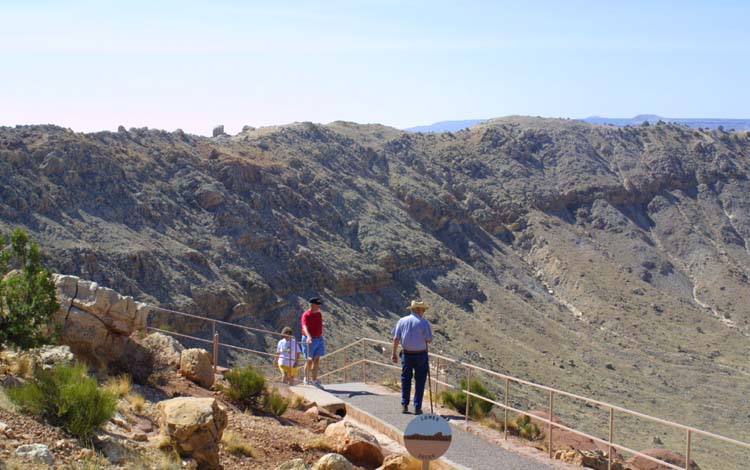
|
|
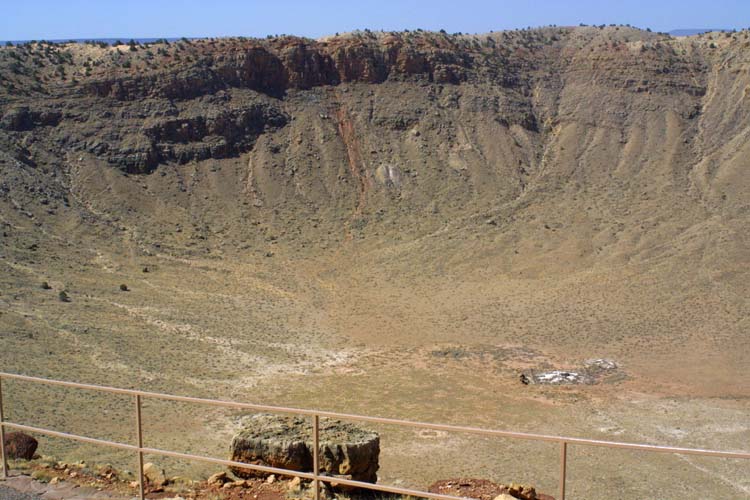
|
|
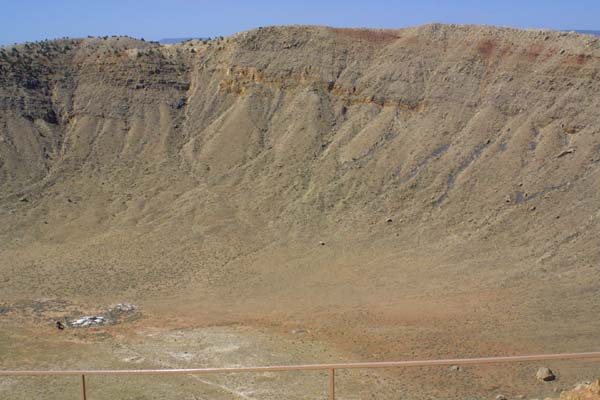
|
A look down to the bottom of the crater. The structures visible are in part due to the craters one time role of iron mine, but are mostly new structures for the benefit of tourists. One of them is a mock up of the Apollo Lunar Module. This is here because astronauts practiced lunar operations here in the sixties. |
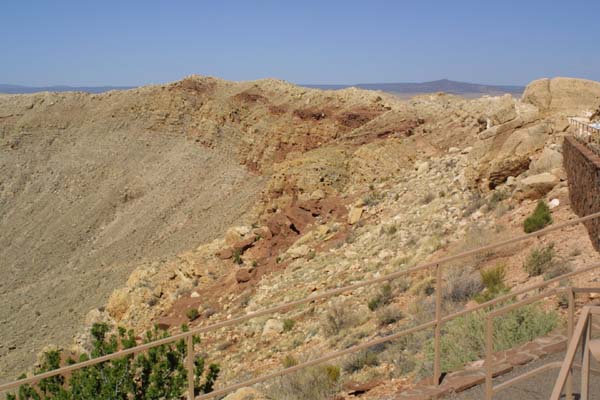
|
A view along part of the rim. |
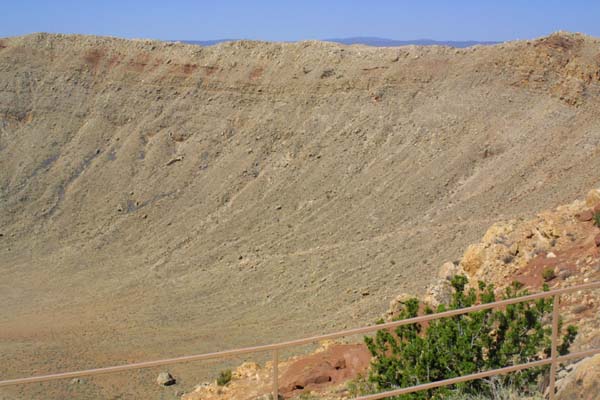
|
Pulling back a bit to get into the bowl of the crater. |
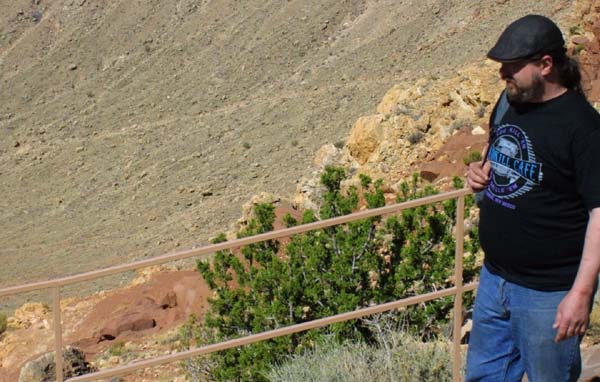
|
This is my brother, walking along the edge, looking down into the crater. |

|
Some tourists hang at the edge of the rail, and take photographs. |
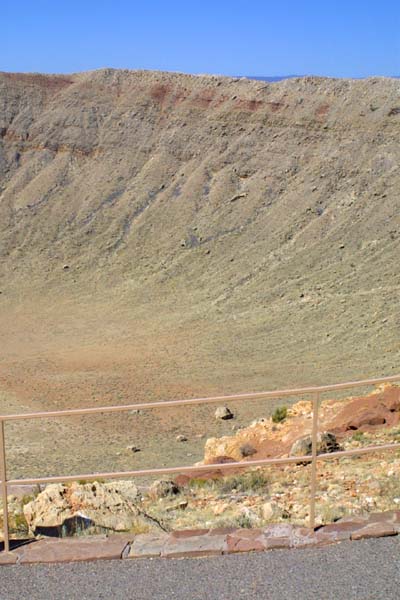
|
A look right over the edge, and down into the bowl of the crater. |
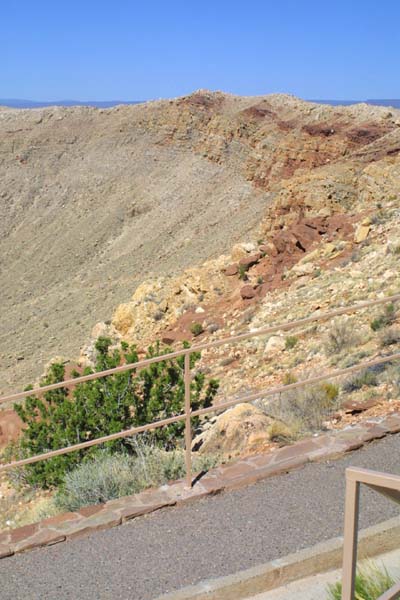
|
A closer look at the rim, where a variety of pulverized rock shows. Tons of rock were smashed and thrown high into the air when the meteor hit. |
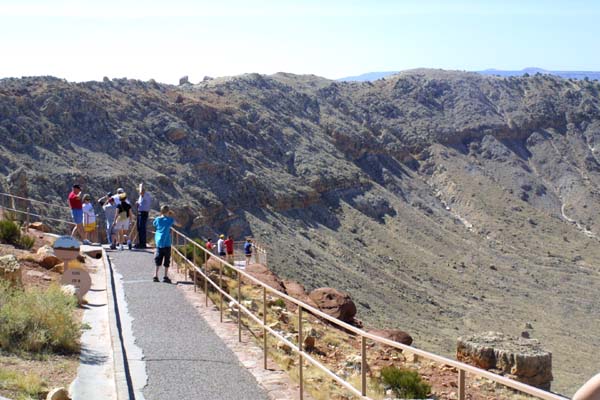
|
A walkway across part of the front rim of the crater. Tourists gather to have their photograph taken in front of the rim. Walkways and stairways lead down to some other levels. |

|
Part of the lower level observation platform. Only a small part of the northern edge of the rim is built up |
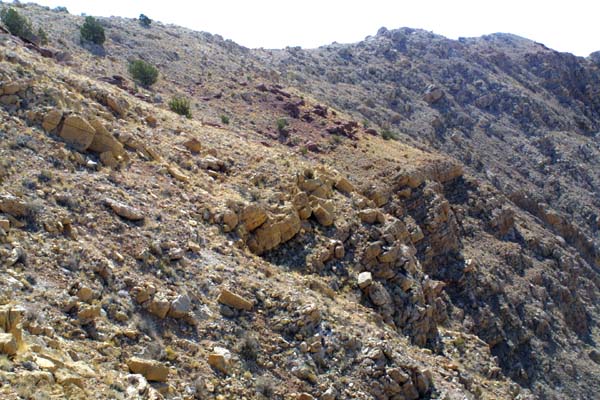
|
More pulverized rock along the cracked edge of the rim. Some area are blackened by oxidation from the tremendous heat of the initial impact. |
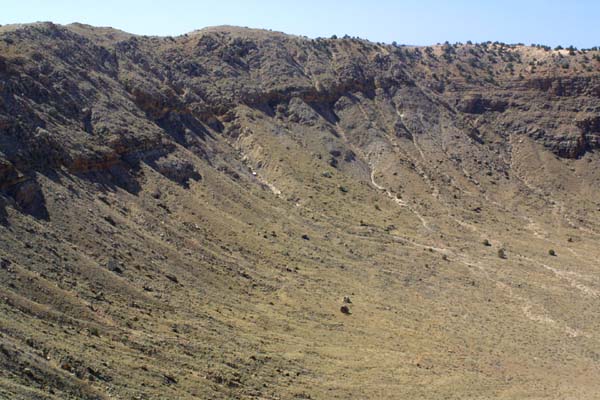
|
A view of the inside of the crater with some slight erosion caused by runoff of the rare rains. Had this crater been formed in a less arid part of the country, it would likely be worn down, and much less impressive. |
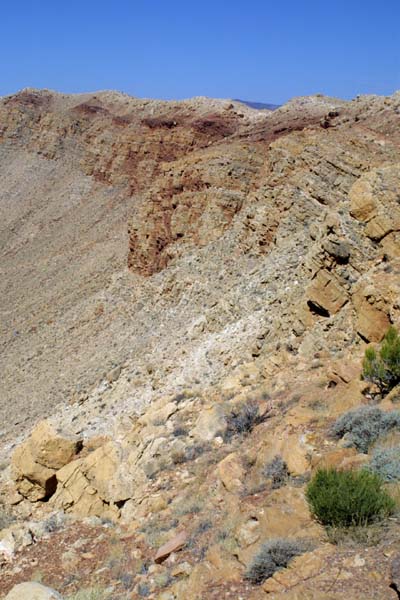
|
Plastic rock still shows some of the original bedding, even as it has been deformed and raised. |
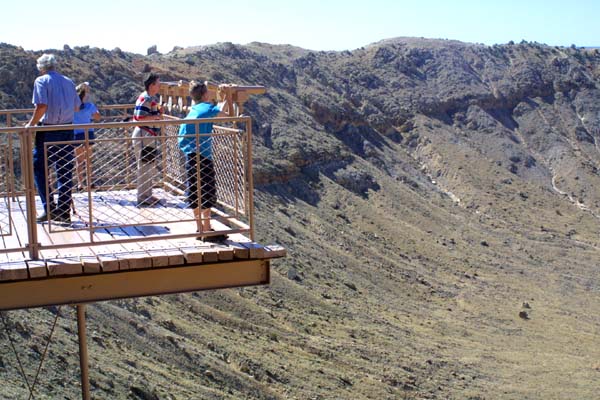
|
Hanging over the edge. These tourists overlook, and overhang the lip of the crater. |
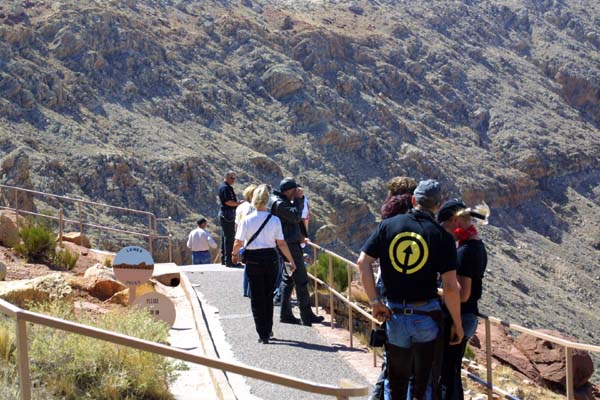
|
These are some members of an Austrian motorcycle tour that was traveling along old Route 66. |
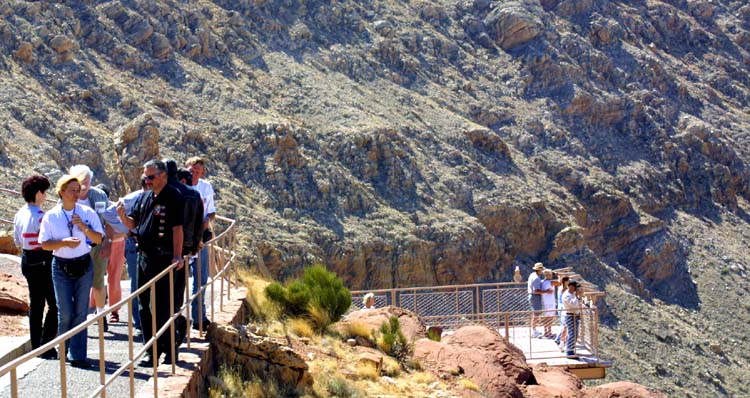
|
|
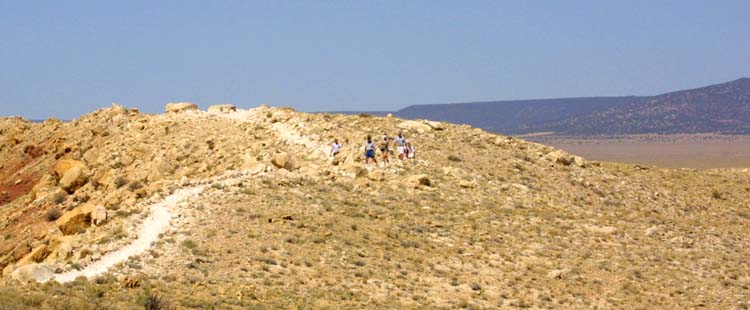
|
|
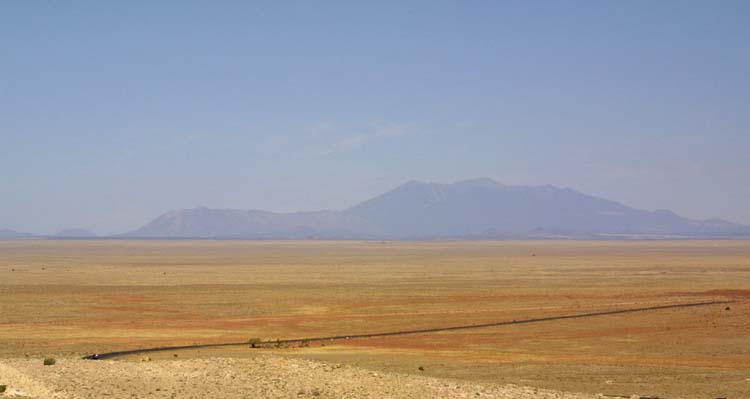
|
|